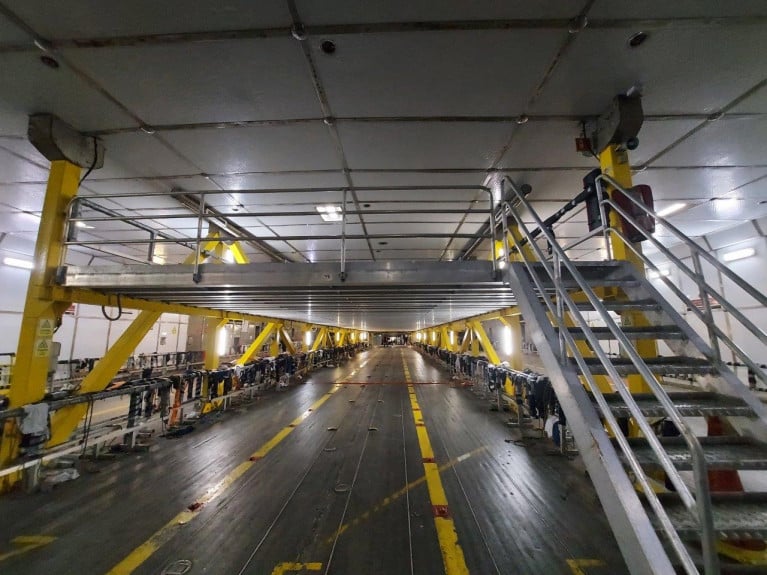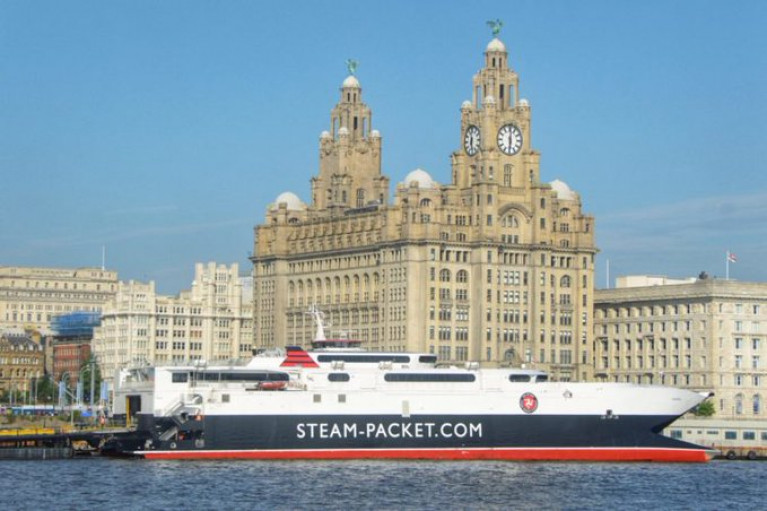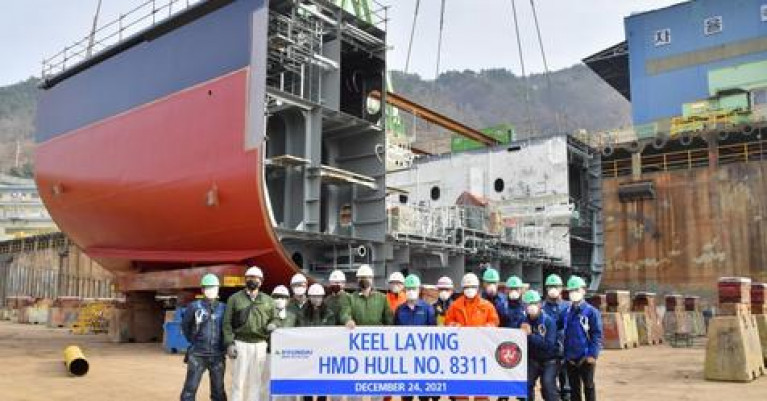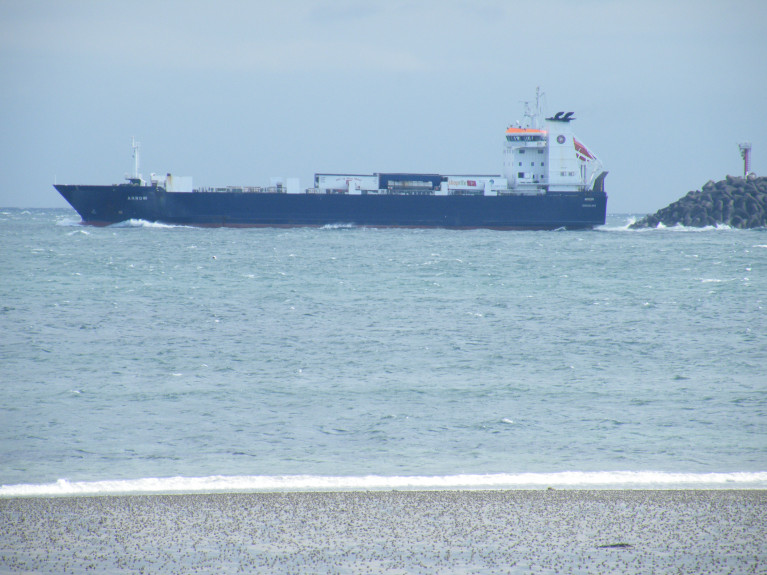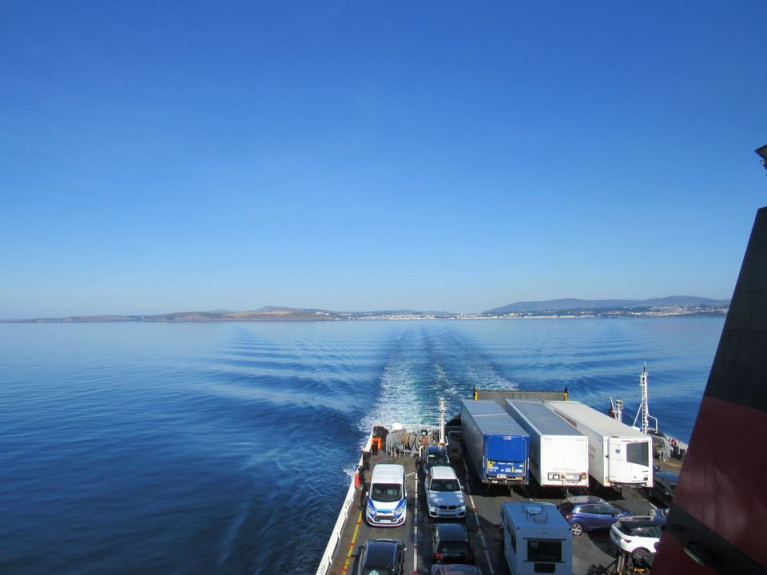Displaying items by tag: IOM Steam Packet
Isle of Man Ferry Operator to Host 'Careers Open Day' this November
Ferry operator the Isle of Man Steam Packet Company is to host a Careers Open Day in Douglas on Thursday, 24th November between 11am and 3pm.
The careers venue will be the Imperial Buildings, the head offices of the Steam Packet which looks to attract individuals and students keen to kick-start or progress a career at sea.
The Steam Packet which has operated on the Irish Sea since 1830, is specifically looking to employ customer services crew members ahead of its 2023 season.
Brian Thomson, Managing Director of the IOMSPCo. said: ‘With a proud heritage in both passenger and freight sea transport, the Isle of Man Steam Packet Company has long understood that its people are key to the success of the business. A truly dynamic company, we provide an essential service to the Island and take great pride in recruiting, training, supporting, and developing our people.
The MD added 'with the imminent arrival of our new vessel, Manxman, and upgrades to our existing fleet make this a great time to join the company, with opportunities across various departments, including engineering, back office, general crew, and customer service. We’ve got a long history of recruiting locally, and there are staff working here today who had parents and grandparents who also worked for the Company.
I’d highly encourage those looking to take their first step into an exciting and rewarding career at sea, to register for our Careers Open Day this November.’
To register for the Careers Open Day, contact this email: [email protected] noting that registration is essential in order to attend the event.
The visitor season is to be extended into the autumn and winter this year by Visit Isle of Man in the hope that it will capture a share of the increasing demand for off-peak UK short breaks.
The Manx Government is working in partnership with Manx National Heritage, Isle of Man Steam Railways and ferry operator the Isle of Man Steam Packet Company is to facilitate the change.
Manx National Heritage’s 12 sites will remain open until 29 November and the Isle of Man Steam Railway will operate a weekend service.
To drive visitor growth Visit Isle of Man is also introducing a new 'Travel Trade Hub' in an attempt to substantially grow the association with UK and Irish based travel agents, and tour operators, and to provide a dedicated online resource for familiarisation and holiday planning.
More from ManxRadio with links to audio clips from tourism and heritage sectors.
Isle of Man Steam Packet Buys Ro-Ro Freight Ferry
The Isle of Man Steam Packet has bought a cargoship (ro-ro freight ferry), which it had previously been using under a longstanding charter agreement, for €9 million.
According to Isle fo Man Today, when the MV Arrow’s current owner said it wanted to sell the vessel, the Steam Packet negotiated the option to buy it, financing the acquisition using existing company resources.
Packet managing director Brian Thomson said: ‘The MV Arrow has proven to be an extremely valuable back-up for our vital island services. Securing her ownership will provide continuing service security and resilience for freight traffic, especially during events such as the TT, Manx Grand Prix and other peak travel periods.’
The original charter of the vessel was secured by the company in September 2013 with the original agreement containing the option to buy that has now been used.
Afloat adds the Arrow operates on the Douglas-Heysham route, the main link between the Island and the UK.
Isle of Man Steam Packet 'Won't Proceed' With Excursion to London for Queen's Funeral
ManxRadio reports on an update from the Isle of Man Steam Packet Company which has said its decision not to operate excursions to London was made 'reluctantly' for several reasons.
The Steam Packet has confirmed it won't proceed with plans for a (ferry & coach) excursion for Her Majesty The Queen's lying in state or state funeral.
The organisation says the decision has been made 'reluctantly' due to long queuing times, high levels of traffic in London and other operational constraints.
The Steam Packet says anyone wishing to pay their respects in London may consider using (instead) the 'Sail & Rail' offer.
It adds staff at the Ferry Travel Shop at the Sea Terminal will be available to help Manx residents make travel arrangements.
In addition, Afloat adds the Steam Packet's facebook for further information.
Approximately 34,000 visitors have travelled to the Isle of Man by sea for the TT this year.
Rob Callister MHK, who has responsibility for the TT, said this figure was up by 3,000 people from 2019.
‘It’s normally only 31,000 on the ferry, so that’s gone up,’ he told the Isle of Man Examiner.
Overall, in 2019 there were 46,000 visitors to the island for the TT fortnight.’
He continued: ‘They’ve obviously taken capacity away from the airlines because airlines haven’t had as many extra flights as usual for the TT.’
The TT has returned with a number of new features, including the newly developed TT Plus app, which has been designed for people to watch the races live from their devices, with over 40 hours of live coverage across the event.
The Isle of Man Today has more on the influx of visitors that use the IOM Steam Packet Company routes.
Isle of Man Fast-Craft Ferry to Resume Seasonal Sailings to Liverpool, Belfast & Dublin
Fastcraft ferry Manannan of the Isle of Man Steam Packet will resume seasonal sailings between Douglas Harbour and Liverpool (2hrs 45mins) on Friday 1 April, reports Manx Radio.
The 865 passenger/200 vehicle InCat 96m craft will undertake crossings to Belfast Harbour (3hrs) from 13 April, and Dublin Port (2hrs 55mins) on 14 April.
Brian Thomson, managing director of the Isle of Man Steam Packet Company, said: "With travel on and off the Island opening-up after a challenging couple of years, following the outbreak of Covid-19, it’s wonderful to see many residents and visitors alike using the Steam Packet Company to take a well-earned holiday."
Afloat adds the Steam-Packet has conventional tonnage with the ropax Ben-My-Chree which operates year-round sailings on the operator's main route of Douglas-Heysham.
During the summer, the 'Ben' will also operate occasional sailings on the Belfast-Douglas route which takes a 5 hour passage.
Manx Operator Marks Momentous Moment in Asia As Keel Laid for New Flagship
The Isle of Man Steam Packet Company’s newbuild flagship ferry, Manxman was given an official ceremony held in South Korea, Asia to mark the beginning of the formal construction.
The keel-laying ceremony, which traditionally invites good luck in the construction of a ship and throughout her life, took place at Hyundai Mipo Dockyard in Ulsan on Christmas Eve.
Attended by project managers, Naval architects and surveyors working on the vessel, alongside officials from the shipyard, the milestone event saw the first block of the ship lowered into the building dock and a coin placed under the keel.
The centuries-old tradition is also said to bring luck to the captain and crew during the life of the ship.
Manxman, which is due to replace the Ben-my-Chree when she comes into service in 2023, will be able to carry 949 passengers and have 495m² additional space for freight and vehicles.
Isle of Man Steam Packet Company Managing Director Brian Thomson said: ‘The laying of the keel is one of the most significant dates in that ship’s life and, in effect, marks her birth.
‘Not only was it wonderful to mark such a significant landmark and hold a ceremony respecting maritime custom but it also signifies that after years of careful planning, along with plate and panel work and block construction in recent months, the construction of Manxman can now begin in earnest.
‘The project team is working incredibly hard and, as a Company, we are looking to the future with anticipation and excitement as we keep the Island community up-to-date with the progress
Manx Operator Appoints New Customer Services Manager
Ferry operator the Isle of Man Steam Packet Company has announced the appointment of a new Customer Services Manager.
With a wealth of experience in the travel industry, Seamus Byrne will officially begin in the role on 1st November.
He has held various senior hospitality and marketing roles and, more recently, was instrumental in the successful plan and launch of a multi-million pounds hotel development on the island.
Commenting on his appointment, ‘I am extremely passionate about delivering great customer service which is why I’m thrilled to be joining the management team of the Isle of Man Steam Packet Company.
‘It is truly an exciting time for the Company and I am looking forward to working with the team to ensure we consistently deliver an exceptional customer experience for our passengers travelling to and from the Island.’
Managing Director Brian Thomson added: ‘I am delighted to welcome Seamus to the Company. He is a highly motivated and experienced individual who will bring a wealth of knowledge to the role and help provide the continued consistent delivery of customer service to our passengers.
‘Seamus’s contribution to the business will be invaluable going forward and we wish him every success in his new position.’
Isle of Man Steam Packet 'Could Earn Over £250k' With Assistance On Scotland Service
Isle of Man Steam Packet's ro-ro freightferry, MV Arrow, could earn the company more than quarter a million pounds by helping maintain lifeline cargo services in Scotland.
According to Manx Radio, the freighter is currently running between the mainland port of Ullapool and Stornoway in the Western Isles having been chartered by Caledonian Macbrayne (CalMac) at a cost of almost twelve thousand pounds a day.
The Scottish ferry operator has been hit by disruption and breakdowns on its routes in recent months. The emergency service began in July and is expected to continue until September.
Managing Director of the Isle of Man Steam Packet Company, Brian Thomson, says its vital ferry operators help each other in times of need.
Click here to also link to a brief podcast from the Steam-Packet's MD.
Ferry firm the Isle of Man Steam Packet Company is to have an extra £5m made available after the operator lost more than £10.5m last year.
As Manx Radio reports, the Isle of Man Government says the equity investment is designed to address the commercial impact of the coronavirus pandemic.
Treasury Minister Alf Cannan says the government-owned company has provided a vital service throughout the outbreak, but didn't claim government support despite the impact on its income.
The Steam Packet's full accounts for 2020 were published ahead of this month's sitting of Tynwald.



























